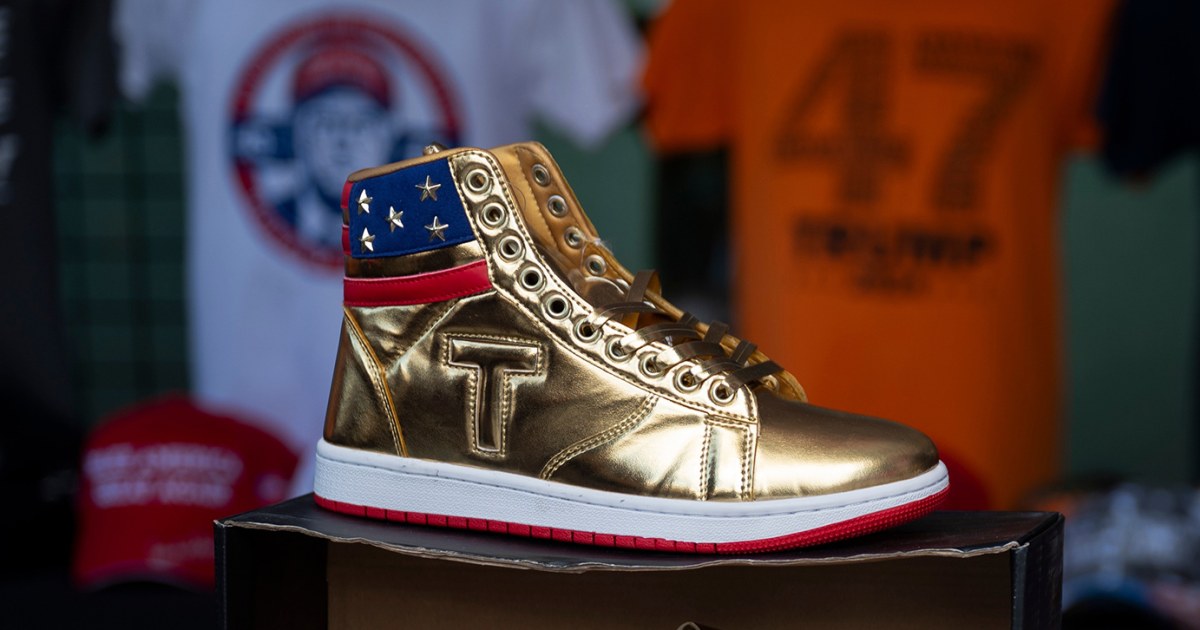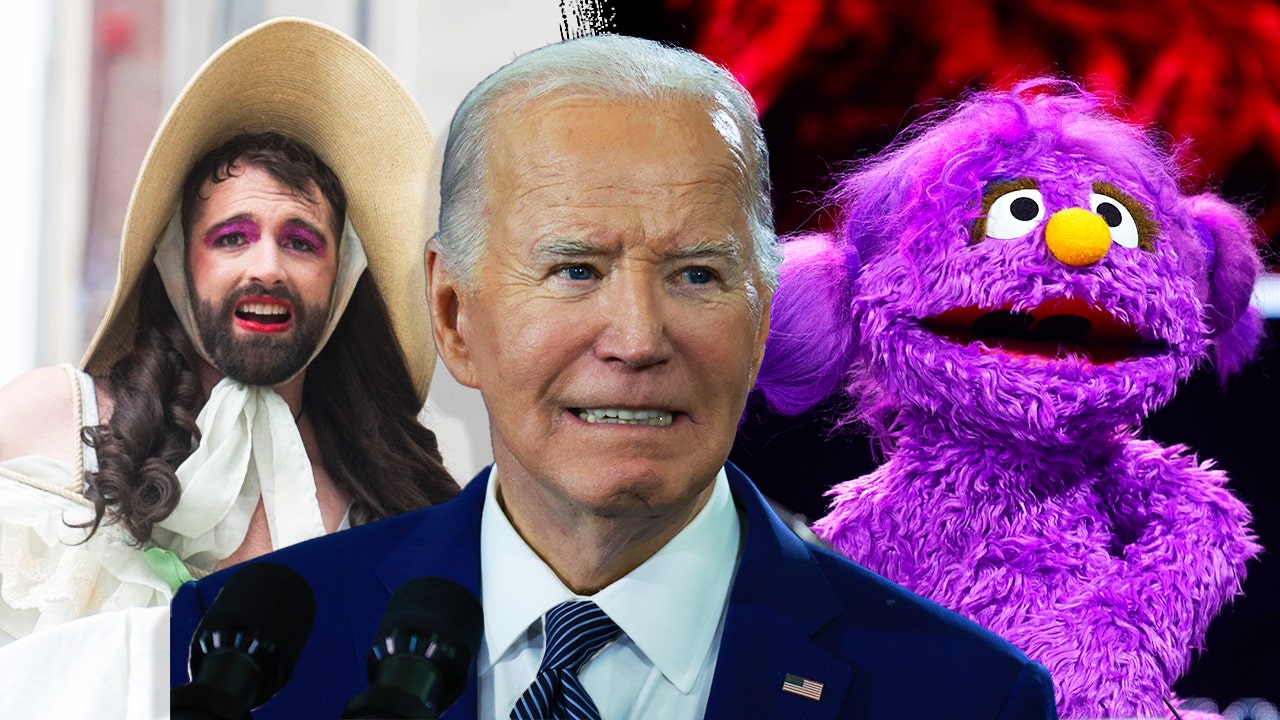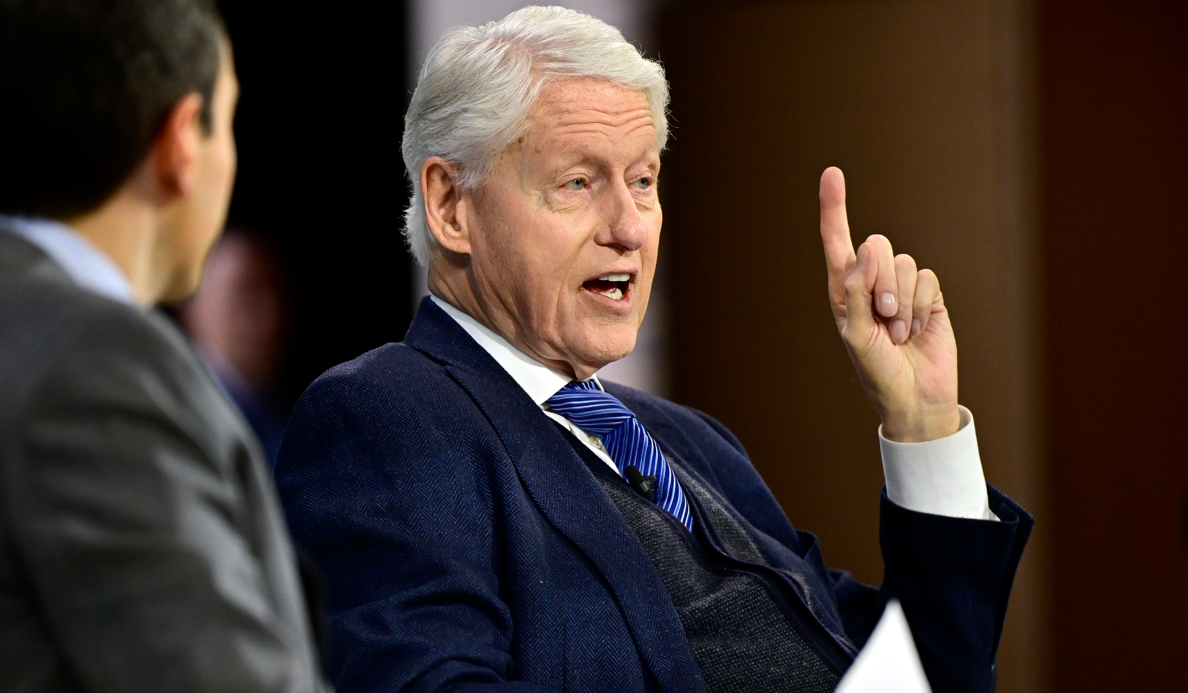Perfumes. Watches. Digital trading cards. Sneakers. Guitars.
President-elect Donald Trump’s tasteless merchandise roll-outs are relentless — and show no signs of slowing as he prepares to begin a second term. Trump has long cashed in on his celebrity name with licensing deals, but the implications are different as he fuses his return to office with a freight train of personally branded products. Trump’s merchandise roster is expanding the ever-widening array of avenues through which Trump can be politically influenced by his businesses. And Trump’s flaunting of it is further fueling his degradation of what it means to be a political leader in a democracy.
As my colleague Steve Benen has noted, Trump unveiled a raft of outlandish products during his 2024 presidential campaign, including silver Trump commemorative coins, a cryptocurrency project and Trump-endorsed Bibles. “At the time, it seemed plausible to think that he was trying to cash in while he had the chance: There was a possibility that Trump, already cash strapped, might lose the election, limiting his money-making opportunities,” Benen wrote. “Now that Election Day has come and gone, it stands to reason that his sole focus would be on his return to the White House, not merchandising. And yet, here we are.”
Trump’s emerging infomercial presidency tracks with his intensifying disregard for conflict of interest.
What’s striking is not just the unabated torrent of post-election products like perfumes and watches, but also the opaque business arrangements behind them. As The New York Times recently reported, “unlike some of Mr. Trump’s earlier efforts, the identities of his current merchandise business partners are shielded through the creation of limited liability companies, which are structured to allow those partners to remain anonymous.” According to the Times, reporters who have tried to track down the Wyoming address of a couple of these LLC’s have found “rural strip malls or buildings populated by unrelated businesses.”
Trump’s emerging infomercial presidency tracks with his intensifying disregard for conflict of interest. As I recently wrote, Trump’s first presidential term was corrupted by many conflicts of interest, and he used the presidency to enrich himself by doing things that included hosting official presidential business at properties he owned. But, at least rhetorically speaking, he put an emphasis on his independence from monied interests, and he did take at least some steps — even if purely nominal in some cases — to ostensibly reduce his conflicts of interest, such as selling his stocks, limiting lobbyist access to his transition team and handing over the running of the Trump Organization to his sons.
This time around, he has dropped all pretense of government ethics “drain the swamp” rhetoric. And he has become far easier to influence than during his first term, in particular due to his ownership of Truth Social, a publicly traded company that he has promised he won’t sell. Trump’s expanding roster of merchandise through nebulous business partnerships only adds to the access points for influencing Trump; pay-to-play opportunities abound through investment in or mass purchases of Trump products — or pitching him on a new line of tacky products he can slap his name on.
On one level, Trump merch is extremely funny; the products are absurd, and he repeatedly demonstrates that even as a billionaire he isn’t above desperately raking in a little more cash, and in the corniest ways possible. What makes it not so funny is that there are a lot of people in America who don’t see through it. Trump is socializing huge parts of the electorate to think that it’s normal for a politician to monetize their public office and signal that government policy is potentially for sale to the highest bidder.
The irony of all this is that much of Trump’s political strength lies in capitalizing on widespread beliefs that the government is corrupt. But his solution to the trust crisis is not to abide by a code of principles which immunize the government’s vulnerability to the interests of the rich. Instead he’s going the opposite way: leaning so far into disregarding the distinction between the public interest and private power that the very notion of “selling out” becomes obsolete.
Source link
 Insights Daily World is your one-stop destination for discovering unbeatable discounts, trending deals, and the latest offers across various products. Stay informed with the newest updates, breaking news, and insightful deals, all designed to help you save and stay ahead
Insights Daily World is your one-stop destination for discovering unbeatable discounts, trending deals, and the latest offers across various products. Stay informed with the newest updates, breaking news, and insightful deals, all designed to help you save and stay ahead




